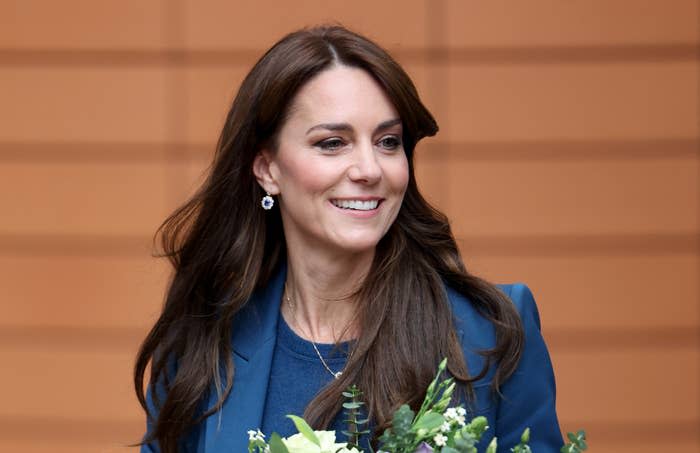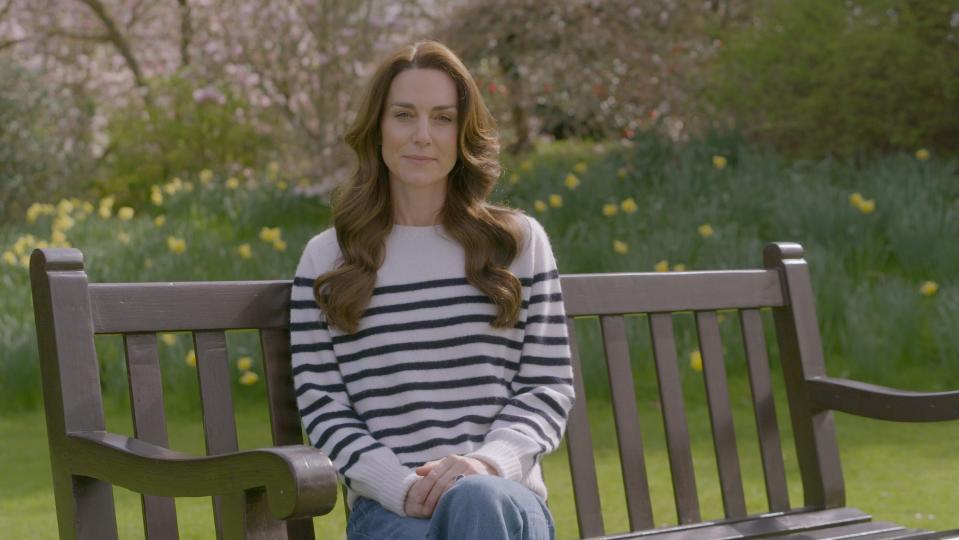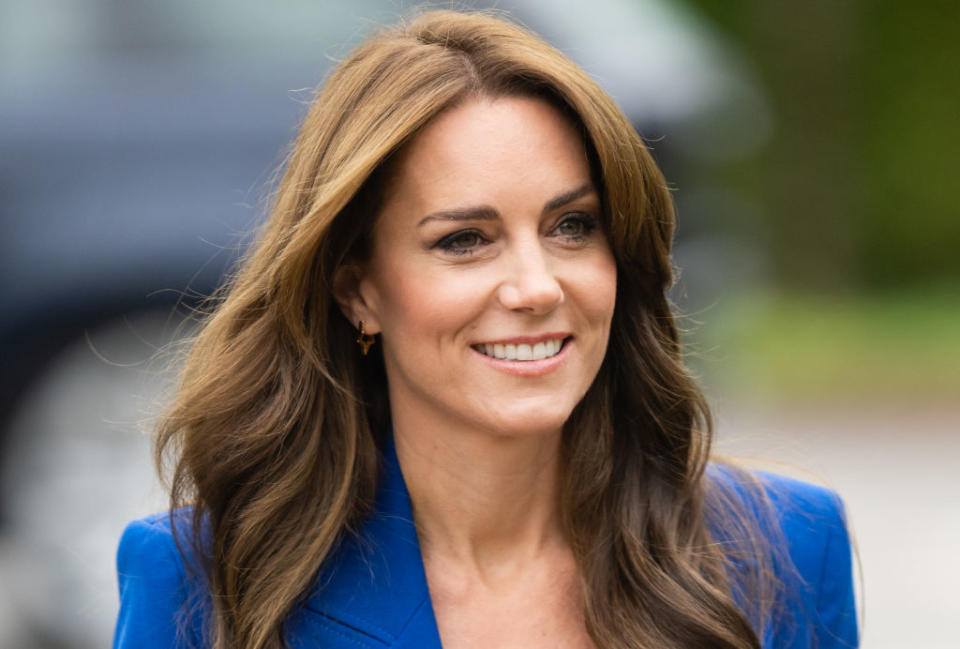What We Know Right Now About Kate Middleton's Cancer Diagnosis

Kate Middleton shared her cancer diagnosis in an unexpected video statement last night.
The Princess of Wales explained that the news came as a “huge shock” to her and her family.
Kate has spent the last few months out of the public eye, following a planned abdominal surgery which was initially thought not to be cancer-related.
Here’s a look at what is publicly known about her condition at the moment.
When and how did Kate find out she had cancer?
When she had planned abdominal surgery on January 16 at a private facility – the London Clinic – Kensington Palace said her condition was “not cancer-related”.
News of the surgery was announced the day after it happened. The Palace only said it was successful, but did not offer any further details.
In Friday’s video, Kate said “tests after the operation found cancer had been present” and she was now in the early stages of preventative chemotherapy.
Dr Yuman Fong, a surgeon at City of Hope cancer centre in Southern California, told Associated Press finding cancer after surgery for a noncancerous problem can happen in about 4% of procedures.
A patient can be going for a surgery related to what is thought to be a benign disease, like removing the gallbladder or ovarian cysts, when cancer can be found, according to Fong.
It is common for tissues taken during surgery to be analysed at a lab afterwards, and that’s when other conditions may be detected.

What is cancer and how common is it?
The NHS says: “Cancer is a condition where cells in a specific part of the body grow and reproduce uncontrollably. The cancerous cells can invade and destroy surrounding healthy tissue, including organs.”
Cancer can sometimes spread through the body, too – that’s known as secondary or metastatic cancer.
One in every two people in the UK will develop cancer in their lifetime.
There are more than 200 different types, and each one is diagnosed and treated differently.
Anyone can get cancer but the risk increases as people get older – more cases are found in people aged 50 and over – because there’s more time for cell damage to accumulate.
But, rates of cancer diagnosis are rising for younger people in developed countries, according to medical research. Kate is 42.
Dr Fong told AP: “We hate it when young people get cancer but at the same time, they are the ones that recover best.”
Survival rates from cancer have doubled over the last 50 years, according to Cancer Research UK.
There’s a huge variation in survival between cancer types. Fifty per cent survive cancer for 10 or more years, according to Cancer Research’s data from 2010-11.
What kind of cancer has Kate been diagnosed with?
Kate did not reveal this, and neither did the Palace.
It’s unlikely they will any time soon, especially as the Princess of Wales has already shared an unprecedented amount of detail about her health.
A Kensington Palace spokesperson said: “We will not be sharing any further private medical information. The princess has a right to medical privacy as we all do.”

What treatment is the Princess of Wales receiving?
Kate said in her statement her team advised her to start ‘preventative chemotherapy’ in late February.
She is now in the early stages of this treatment.
Chemotherapy is an un umbrella term for medication – administered by drip or via pill – meant to kill cancerous cells.
It’s meant to stop the risk of cancer coming back again, although the amount needed and how regularly it needs to administered depends on the cancer.
According to the NHS website, chemo can cause some difficult side effects, though “many can be treated or prevented and most will pass once your treatment stops”.
Not everyone gets the same side effects, but some common ones include: anaemia, infections, loss of appetite, fatigue, nausea and hair loss.
Dr Monica Avila of Moffitt Cancer Center in Tampa, Florida, told AP: “A patient can take anywhere from a few weeks to a month or two to recover from those effects.”
When will Kate return to the public eye?
The Palace did not reveal a working timeline for Kate’s treatment, or the advice from her medical team who will decide when it is.
But, the royal officials seem confident Kate will recover.
The statement said: “The Princess is now on a recovery pathway.”
In her video statement, Kate said she had taken her time to tell the public her diagnosis because she wanted to first reassure her three children – aged 10 and under – that she was “going to be OK”.
“As I have said to them, I am well and getting stronger every day by focusing on the things that will help me heal, in my mind, body and spirits,” Kate said.This article originally appeared on HuffPost.

 Yahoo Lifestyle
Yahoo Lifestyle 
